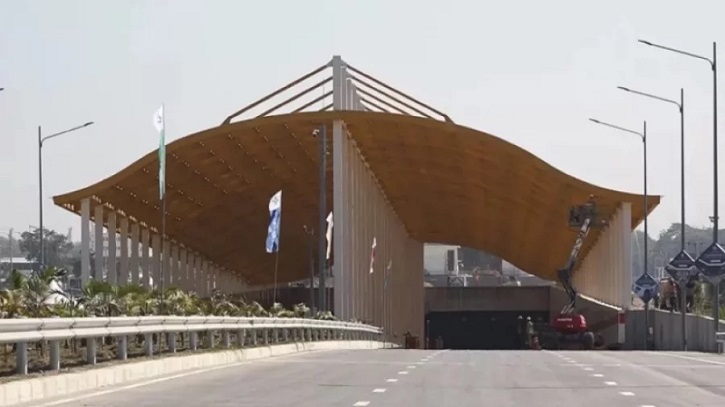We have almost 200 years of banking experience and the first modern bank started operation in Dhaka 177 years ago in 1846 — known as The Dacca Bank. Later, it was purchased by Bank of Bengal and shortly opened limited branches across major cities.
After Liberation, 12 banking companies who were doing business in Bangladesh were nationalized by the government. Over the last couple of decades, Bangladesh’s economy has significantly grown. In line with economic growth, the financial sector has evolved too.
Mobile financial services (MFS) have played a major role in accelerating financial inclusion. Digital innovation is continuously modifying the landscape of the financial system all over the world and Bangladesh Bank has recently decided in principle to issue licenses for full-fledged digital banks. This move will work as a blessing for our overall economic development activities through multiple segments.
Impact on CMSME
The cottage, micro, small, and medium enterprises (CMSMEs) play a pivotal role in the Bangladesh economy and are considered a driving force in the economy. According to the World Bank, CMSMEs contribute around 25% of Bangladesh’s GDP and employ around 87% of the industrial workforce. As per the statistics of the SME Foundation, there are more than 7.8 million CMSMEs in Bangladesh and 7.3 million people are engaged in this sector.
According to the World Bank, the SME sector in Bangladesh has a financing gap of $2.80 billion and ADB indicated that more than 40% of SMEs do not have access to formal credit.
One aim of establishing digital banks is to promote the country’s CMSME sector. Through digital banking, CMSMEs can easily access the required financial services at a lower cost. This will stimulate growth in the sector and will foster inclusive growth, shared prosperity, and reduce poverty along with accelerated creation of new employment.
Impact on agriculture
Agriculture and fisheries is at the centre of our economy, ensuring food security. Combined,these two sectors’ contribution to GDP is above 15% and the majority of Bangladesh’s population is primarily employed directly or indirectly in agriculture.
However, around 80% of farmers are taking loans from NGOs and moneylenders at high interest rates. To overcome their financial problem and have access to formal banking channels for availing loans, digital banks can be the solution. Ultimately, this lending will reduce cost of production as well as enhance the production output that will directly contribute positively to our GDP.
Impact on insurance and remittance
Bancassurance is an arrangement between a bank and an insurance company allowing the insurance company to sell its products to the bank’s client base. In May 2022, the Central Bank finalized guidelines for local banks to provide this service and indeed this move will actively contribute positively for the insurance sector across Bangladesh.
The contribution of the insurance sector to our GDP is only 0.46% whereas it is 2.90% and 4.65% in India and Sri Lanka respectively. On the other hand, after the launching of digital banks, very shortly, at least one member from each family can be a digital bank account holder. Easily, bancassurance products can be brought to mass people in both rural and urban areas through digital banks.
More than 14.9 million Bangladeshi workers are working in 176 countries across the world and sent a total of $21.61bn through formal channels in FY23. According to studies, in developing nations like Bangladesh, around 35% remittance comes through unofficial channels.
According to Masrur Reaz, chairman of Policy Exchange, remittances can be brought quickly through digital channels. There is no alternative to using digital platforms to boost remittance inflows and indeed digital banks can be the best digital platform channel for increasing remittance through formal channels and will actively support to increase our foreign reserve.
As per the World Bank, nearly 60% of people live in rural areas and most of them don’t have access to banking channels. Through digital banks, most rural unbanked people can be brought under the banking ecosystem and multiple financial savings products can be reached to rural people’s doorsteps.
Digital banks building a cashless society
In the last couple of years, Bangladesh government has taken multiple initiatives to transform Bangladesh. Digital banks will play an active frontline role to accelerate several initiatives to achieve further transformation, such as our intention of becoming a cashless society.
The success of digital banks across Bangladesh will depend on many factors and out of those, the keys are introducing best-in-class platforms and solutions, ensuring proper cyber security, effectively engaging all private and government bodies, boosting internet penetration, and finally, defining and offering the right products to customers.
Failure to do this will lead to difficulties to achieve the main objectives of introducing digital banks.
Mohammad Rashedul Alam is working in corporate as executive vice president and head of supply chain and procurement. Views are personal.
Source: Dhaka Tribune.

